The Web Can Be an Anti-Incest Space, but It's Not
Pro-incest propaganda is far too easy to access. We can change that.
Listen to the post read by Jo. or read below. This piece discusses incest abuse. If you’re a survivor or supporter seeking resources, head over to Incest AWARE or Sibling Sexual Trauma.
I first published a collection of my incest stories on the internet in the form of a blog called Blue&Lavender. Back in October of 2017, #MeToo went viral after decades of labor by Tarana Burke and other anti-rape activists, forcing our patriarchal society to reckon with the reality of the global sexual violence epidemic.
Although incest survivors like me published #MeToo on our own social media feeds, public discourse around the subject centered sexual harassment and violence in the workplace. This month we celebrate the seventh anniversary of the metoo. Movement going global, yet still sexual abuse in the home remains a marginalized issue that is too taboo to talk about…except for on the internet.
If folks want to learn more about the incest crisis on the internet, all they have to do is plug a number of incest-related queries into their preferred search engine — to name a few: Google, Bing, or Yahoo. Numerous Search Engine Results Pages (SERPs) will then appear to tell users what do in the form of encouraging Reddit and Quora Chatrooms, incest-themed pornography and child sexual abuse material (CSAM), breaking news about people attempting to legalize the issue, and outdated medical research from the 1980’s that still question whether or not children can consent to sexual activity, as well as if they were the ones responsible for the violence.
In all cases, what the internet has done and continues to do is be a pro-incest propaganda space, where those who want to talk about incest openly do, and the conversations most often claim consent and not abuse. It would be far too easy to accuse an outspoken anti-incest activist like me of hyperbolizing this story to draw attention to this issue that has deeply impacted my family, my community, and me. So I encourage you to try it yourself. In order to help you, I have supplied a table of the most searched for incest-related keyphrases in the past year that I pulled from the software Mangools.
(Note: this is an affiliate link, which means if you purchase the software, I will earn a commission.)
If you search for any of these keyphrases, what do the first two to five results give you?
Incest survivors know how prevalent this issue is not just from our own lived experiences, but because we are often the first to receive the disclosures of others. However, the incest data gap makes it challenging for activists like me to ground our stories in studies that help us to understand the prevalence and severity of this issue. So, we have had to seek datasets in surprising places.
Sarah Zhang, a staff writer at The Atlantic, recently discovered a hidden incest dataset and published this piece to share about it: DNA Tests Are Uncovering the True Prevalence of Incest. Search engine keyphrase research offers another set of data to show at least how common interest is in the issue of incest. Although some keyphrases are from people seeking support to report incest, to heal from incest, or to address incest, most incest-related keywords query content or community that will answer their question: “How do I or should I incest someone?” or “Where can I find incest content?”
Hundreds of incest-related keyphrases are searched every year. Of the 23 shared in the table above, 3,442,700 total searches were done in the last year just in the United States. In most if not all cases, search engines will answer these queries with pro-incest propaganda such as chatrooms and pornography.
The first Incest AWARE website was launched by a friend and fellow activist Suzanne who sought to create one of the only anti-incest platforms on the internet at the time. When Suzanne retired, I took over the website and the growing organization. As a Search Engine Optimization (SEO) content strategist and writer, my goal was to ensure that Incest AWARE’s pages ranked within the first five search results for any anti-incest related keyphrases, or those seeking support, information, and resources. Below you can see the first 29 of many anti-incest related queries, as well as where Incest AWARE’s pages rank on average within SERPs results.
Shouldn’t there be an easier way to direct users to support resources?
Yes. Search engines provide two types of messaging for concerning queries: signpost and deterrence. Signpost messaging offers the first search result as a hotline or helpline so that the user can get the support they need. Here is an example of a signpost message that Google provides when I type in “sexual violence.”
Deterrence messaging redirects people who may intend to harm someone else or view illegal material toward online and anonymous self-help platforms that can mitigate harm. Through their Deterrence Campaign, Stop It Now! — a US, UK, and AU based non-profit working to prevent child sexual abuse — offers deterrence messaging through a chatbot on platforms like Pornhub when users search for child sexual abuse material.
All incest-related keyphrases could lead users to both signpost and deterrence messaging as the first result to redirect them toward support. However, due to The Incest Gap and lack of awareness around this issue, incest-related keyphrases have been neglected from signpost and deterrence messaging across search engines and other digital platforms.
We have a long way to go to make the internet an anti-incest space. However, we can begin by partnering with Google and other organizations to ensure that search engines and other platforms first lead users interested in incest-related keywords to support organizations like Incest AWARE and Stop It Now! to provide accurate information and reduce harm.
If you have access to any connections that can contribute to our goal to make the internet an anti-incest space, please reach out. Thank you!



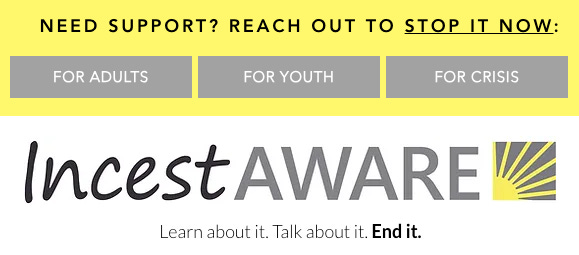
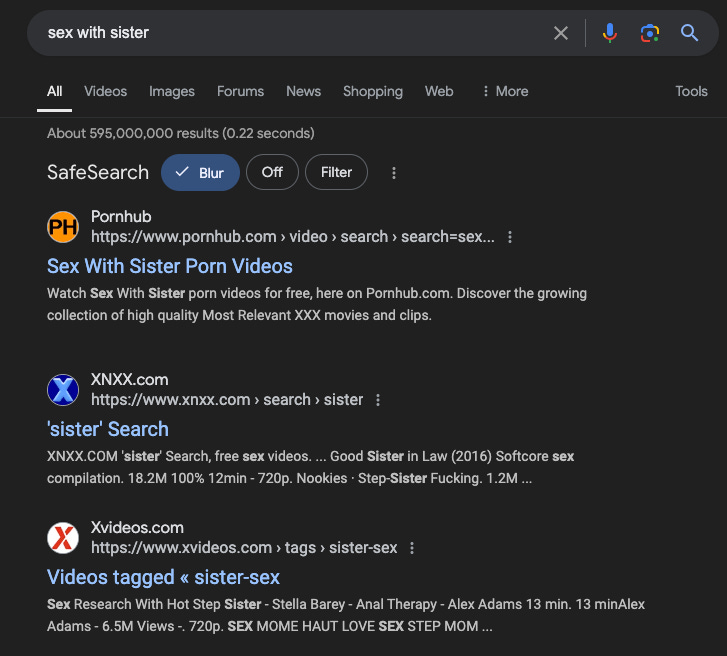
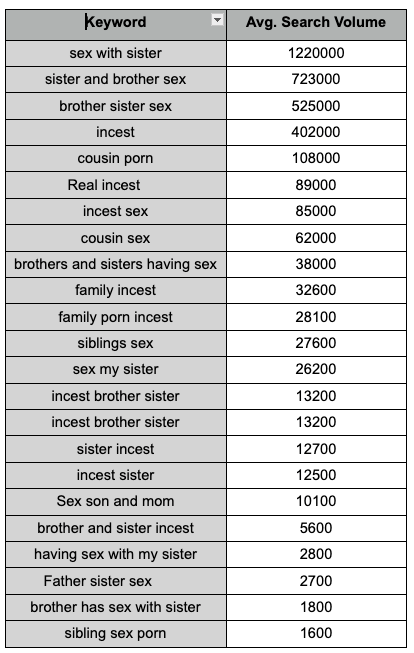

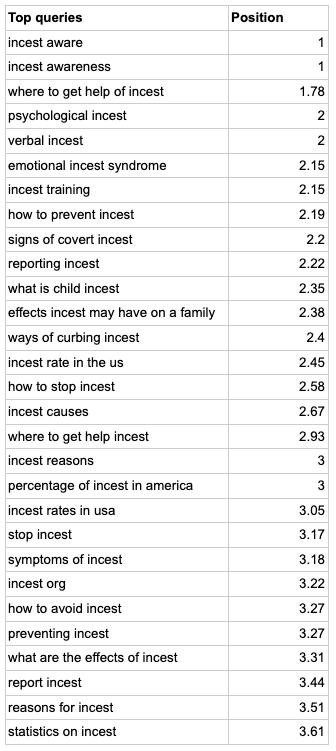
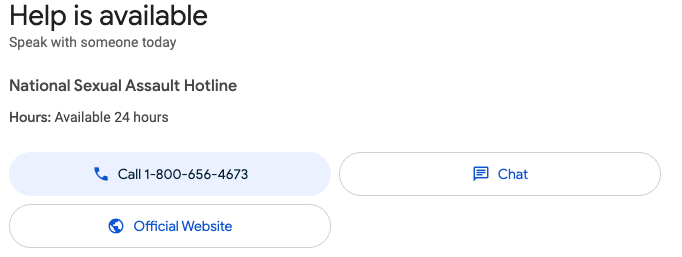
A well written article that more people should read! Thank you!
Great info Jo. I’d like to know how to help create an anti-incest space. Suggestions?